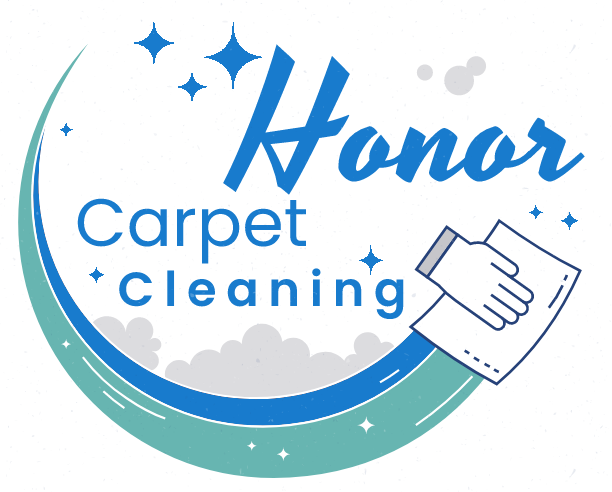Table of Contents
Are you tired of spending hours scrubbing, mopping, and dusting to no avail? It’s time to discover the power of commercial cleaning! In this comprehensive guide, we’ll demystify the world of commercial cleaning and show you how it can revolutionize your space. From sparkling office buildings to spotless restaurants and pristine healthcare facilities – get ready to unlock the secrets of professional cleanliness like never before! So, grab your mop and join us as we dive deep into what precisely commercial cleaning is all about. Let’s investigate, what is commercial cleaning.
Importance of Commercial Cleaning
Commercial cleaning is an essential part of maintaining a healthy business. Dirty carpets, windows, and floors can lead to poor air quality and a loss of customers. Regularly cleaning your commercial spaces lets you keep your employees healthy and your business functioning at its best.
When choosing a commercial cleaning company, ask about their experience in dealing with healthcare facilities. These companies are often more adept at keeping patients and staff safe during emergencies. When selecting a company, also ask about their pricing structure and how often they will come back to clean. While it is not necessary to have your commercial spaces cleaned weekly, it is essential to have them cleaned regularly so that the environment is clean and welcoming for clients and employees alike.
Types of Commercial Cleaning Services
Commercial cleaning services can be classified into three types:
FULL SERVICE, INCREMENTAL CLEANING, and PARTIAL SERVICE.
Full-Service Commercial Cleaning

A full-service commercial cleaning service usually includes a
comprehensive assessment of the client’s needs and targets, a detailed planning stage outlining the tasks to be completed, impeccable attention to detail, and robust quality control processes, ensuring that all staff are fully trained and up to date with modern, industry-standard techniques. This type of commercial cleaning is ideal for companies with many premises requiring regular, systematic cleanliness. It can also represent an excellent value-for-money solution, as repeated visits by professionally-trained staff will often result in less need for repeat work later on down the line.
Incremental Cleaning
Incremental cleaning services involve regularly sending out small teams of cleaners to clean specific areas or rooms daily or weekly. It is beneficial for businesses with numerous locations – it allows companies to spread out the costs of professional cleaning over a more significant period, which often works out cheaper than having one big clean done from top to bottom at once. It’s also useful for businesses that don’t have the time or resources available to carry out a full-blown deep clean from time to time – incremental cleaning can act as a gentle “spring clean” instead.
Partial Service Commercial Cleaning
Partial commercial cleaning refers to a cleaning service that only encompasses a few specific areas or rooms on a client’s premises. This type of service is ideal for businesses that need regular but not comprehensive cleaning; for example, if a business relies heavily on electronic equipment and needs to keep the cleanliness of its office space high but does not require regular carpet or upholstery cleaning, a partial service might be the perfect fit. Partial service commercial cleaning services can range from daily visits to occasional deep cleanings, whichever suits the client’s needs best.
Key Considerations for Hiring a Commercial Cleaning Company

When considering whom to hire to clean your commercial property, you should always keep a few key considerations in mind.
The first is the Company’s License and Registration. While not an exhaustive list, some of the following requirements may be necessary for your company to operate legally:
- Company License
- Business License
- Backflow Prevention Device Requirement
- Hazardous Waste Management Program
Buildings must be properly registered with local authorities and meet specific safety and health codes. Many municipalities require the installation of backflow prevention devices as part of a business licensing and registration process.
Requirements can vary by municipality, but an essential requirement is that businesses maintain up-to-date contact information for their responsible party(s), as well as inspection records.
The type of cleaning service also matters when choosing a company to hire. Not all companies offer all services, so it’s important to review which ones your business needs before making any decisions. Some standard services offered include janitorial cleaning, window washing, carpet/rug cleaning, dusting, and general repair work such as fixing broken locks or filing permits required for certain types of construction.
In most cases, contracting with the right company will save you time and money in the long run. Commercial properties can be large and complex, with many different areas requiring attention; it’s essential to find someone with experience tackling these challenges regularly. Reviewing testimonials from previous clients can help get an idea.
Benefits of Outsourcing Commercial Cleaning

There are many benefits to outsourcing commercial cleaning services. Not only can you save money by hiring a professional cleaner, but you may also enjoy improved workflow and reduced stress. In addition, getting your cleaning done promptly and efficiently can help build trust with your customers.
Here are some key reasons to outsource your commercial cleaning:
Saving Money: When you outsource commercial cleaning, you can focus on other business areas. Many pros offer competitive rates that can save you up to 50% on the cost of regular cleaners.
Improved Workflow: When your cleaners are experienced professionals, they can work more quickly and efficiently than most employees can manage independently. It will result in better cleanliness for you and lower customer service costs.
Reduced Stress: Hiring a professional cleaner can help relieve some pressure off your employees during busy times. By freeing them up to do their jobs better, you likely see an increase in productivity overall.
Trust Development: When customers know that their businesses are being handled properly, they will likely trust you more. Professional cleaners know how to build and maintain good relationships with their clients, which can lead to repeat business and referrals.
Commercial Cleaning Equipment and Products
Commercial cleaning equipment and products vary significantly in size, price, and features. Before making a purchase, be sure to read the specific needs of your business. Here are some of the most common types of commercial cleaning equipment: blowers, vacuums, brooms, mops, and scouring pads.
Blowers: A blower is a powerful tool for dusting, sweeping, and removing debris from hard-to-reach areas. They come in different sizes and strengths, so get one strong enough for your needs. Some popular blowers include handheld models and floor models.
Vacuums: Vacuums are essential for cleaning lobbies, meeting rooms, restrooms, and other spaces that contain lotion or hair products. They come with various attachments — such as a dustbin cleaner and crevice tool — to make cleanup easier.
Brooms: Brooms are used for cleaning floors and surfaces such as grates and ledges. They come in various sizes and shapes to suit different cleaning needs. Popular broom brands include Hoover and Bissell.
Mops: Mops are made of different materials (such as cotton cloth or sponge) that can be wetted with water or cleaner to clean floors or surfaces. Mop heads can also be equipped with scrubbers or brushes to tackle tougher stains.
Commercial Cleaning Checklist
Commercial cleaning can be daunting, but with the proper checklist and some basic know-how, it can be easy to take care of your business’s cleanliness.
Here are five tips for creating a successful commercial cleaning regimen:
1. Set realistic expectations. No matter how thorough your cleaning crew is, areas will always need more attention. Expect to see messes and objects left behind that weren’t touched by the cleaners. Factor this into your budget and plan accordingly.
2. Organize BEFORE you clean. Ensure all furniture is placed where you want it before you call in the professionals; this will minimize extra work once they arrive. Check corners and behind items for storing materials or cables; remove these if needed to make more room. Clear any debris before mopping so water reaches all parts of the floor rather than pooling up in one spot.
3. Schedule regular inspections for bumps in coverage or unexplained dirt buildup (which could indicate potential damage). This way, you can address issues before they become significant problems.
4. Equip your team with the proper tools and equipment. Cleaners need access to brooms, mops, buckets, ladders, and other tools to get the job done efficiently and safely; ensure you have enough of each for their visit!
5. Be prepared to offer incentives or rewards for a well-done job! Including specials in your weekly schedule or holding onto trophies for the month can motivate your team, ensuring that your commercial cleaning services are always as good as possible.
Tips for Maintaining a Clean and Healthy Workplace
Some essential tips are always helpful when it comes to keeping a clean and healthy workplace. It includes ensuring that windows and doors are kept closed when possible, using Fans or A/C units to keep spaces cool in the summer, and regularly sweeping and mopping floors.
In addition, dishes should always be washed and placed in the dishwasher before being put away, garbage should be disposed of regularly, and surfaces that may be touched should be cleaned with an anti-bacterial cleaner or disinfectant.
Employers can also promote a healthy work-life balance by providing their staff with reasonable break times and opportunities for exercise.
To maintain a clean and healthy workplace, follow these tips:
1. Establish and enforce rules and standards for employee behavior
Enforce a no-nonsense policy on cleanliness and hygiene in the workplace. Ensure all employees know what is unacceptable behavior and how to comply with regulations. Create a system of accountability through frequent monitoring and audits.
2. Evaluate work areas regularly for dust, dirt, debris, etc.
Regularly assess work areas for dust, dirt, debris, rodents, or other potential pests; clean where necessary. Use appropriate cleaning supplies and procedures to keep work surfaces clean at all times. Establish rotation schedules for cleaning tasks to avoid burnout among employees.
3. Keep janitorial supplies on hand
Keep janitorial supplies such as buckets, mops, brooms, or vacuum cleaners on hand to quickly address any spills or messes in the workplace.
Supply cleaning chemicals and equipment according to the specific needs of your business (e.g., daily floor sweepings may necessitate more potent disinfectants than those needed for general office cleaning).
Properly store all materials to prevent them from becoming contaminated or creating odors.
Conclusion: The Impact of Professional Commercial Cleaning
Commercial cleaning is an essential service that helps businesses maintain a clean and organized environment. It can help to reduce the risk of damages or accidents and improve worker productivity. In addition, it can help to increase brand awareness and build customer loyalty.
Many types of commercial cleaning services are available, so selecting the right one for your business is essential. Some services are designed to remove specific types of dirt and debris, while others are more comprehensive and cover everything from dusting to deep cleaning. It’s also important to consider the cost of each service and whether it offers any discounts or specialties explicitly tailored to your business.
Commercial cleaning is an essential service that can help businesses protect their assets, improve worker productivity, and build customer loyalty. Selecting the correct type of commercial cleaning service for your business is key, but remember that this isn’t a one-time event; it’s an ongoing commitment that requires regular monitoring and maintenance.

